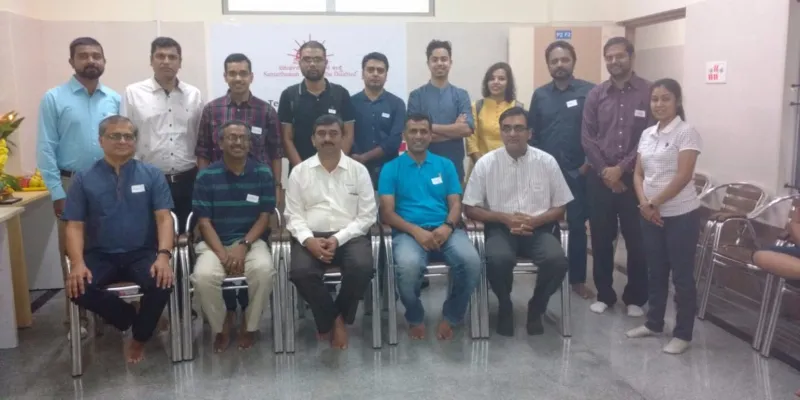How former Microsoft, Accenture execs joined hands with Samarthanam Trust for an accelerator to help startups making solutions for the disabled
The Assistive Technology Accelerator focusses on startups building tech-based solutions for the differently abled.
See a problem, solve it – that’s the mantra that most startups set out with. And in doing so, they come up with solutions that makes things easier for a wide audience. The same goes for startups working in assisted technologies. However, most often, these startups can find it difficult to reach out to the intended market and target audience.
“In fact, people with disabilities are one section of the society that are the least exposed to technology when the fact is that they would be able to make the most from it,” says Prateek Madhav, CEO of Assistive Technology Accelerator (ATA).
This was the genesis for starting the ATA, which focusses on startups that are building assistive technology for the disabled. For close to two decades now, Prateek has straddled the two worlds of corporate and non-profit organisations. Having worked with Accenture, he was earlier an advisor with the Samarthanam Trust for the Disabled before he joined full-time.
Why an accelerator for assistive technology
Prateek says technology and startups can transform the lives of the differently abled. However, the primary problem for startups looking to create and develop technologies to help these people is taking them to the market.
“This is the problem we set out to address with the Assistive Technology Accelerator,” says Prateek. Quoting a WHO report, he says that by 2030, close to 2 billion people in the world will need at least one assistive technology product. He adds,
“There are 70 million people with disability in India, and over 1 billion, or close to 15 percent of the world’s population, lives with some form of disability. It is important that we start using our advanced technology and products to make life easier for them.”
He joined hands with Ravi Narayan, who is well-known in the venture capital and startup accelerator space. For over two decades, Ravi has mentored startups, helping them build, grow, and scale. He was the global director at Microsoft Accelerators, and is the CEO of T-Hub today.
“When I first came to India two decades back, there wasn’t much of a startup ecosystem - hardly any mentors or investors. In over a decade, the ecosystem has grown and evolved. After years of building for-profit startups, I felt it was time to look at startups in the assistive technology space,” he says.
The ATA is housed in the premises of the Samarthanam Trust, and is actively supported by Mahantesh G.K., Founder and Chairman of the trust. Prateek says the trust helps give startups access to the target market, space, and allows them to test their products.

The team at the soft launch of the Assistive Technology Accelerator
What it offers
“In addition to all the facilities that an accelerator provides such as mentorship and funding, the ATA also offers a ready ‘market’ right here for assisted technology startups. Any technology or product they develop can be immediately tested and applied,” says Ravi.
The accelerator had a soft launch in November 2018 and applications are now open for startups to apply. Once the cohort is formed, the chosen startups will receive guidance and mentorship for six months with respect to product-market fit and in setting up a business model.
The focus of the accelerator is to help existing assistive technology startups scale their business across India and find a global audience and also assist them in funding as well. Ravi says they are now looking for startups that have a basic minimum viable product in place, and have had few tests in the market. He adds,
“In the next phase, we will also look to incubate early-stage ideas and finally, we also aim to help startups solve larger disability issues through collaboration among startups.”
The accelerator will also provide mentorship in terms of growth, investment strategy, product design and management. It will conduct workshops, sessions from industry leaders and disability experts. ATA will also give startups access to beneficiaries, NGOs, and experts, and help them with distribution channels for assistive technology solutions.
The ATA also provides a subsidised seating space for startups and hosts other startup workshops.
“Today, there are many college and university projects and assignments that are simply lying waste. And the primary reason for that is lack of market access or lack of building a solution that can actually be utilised by people. At ATA, we want to change that,” says Prateek.







